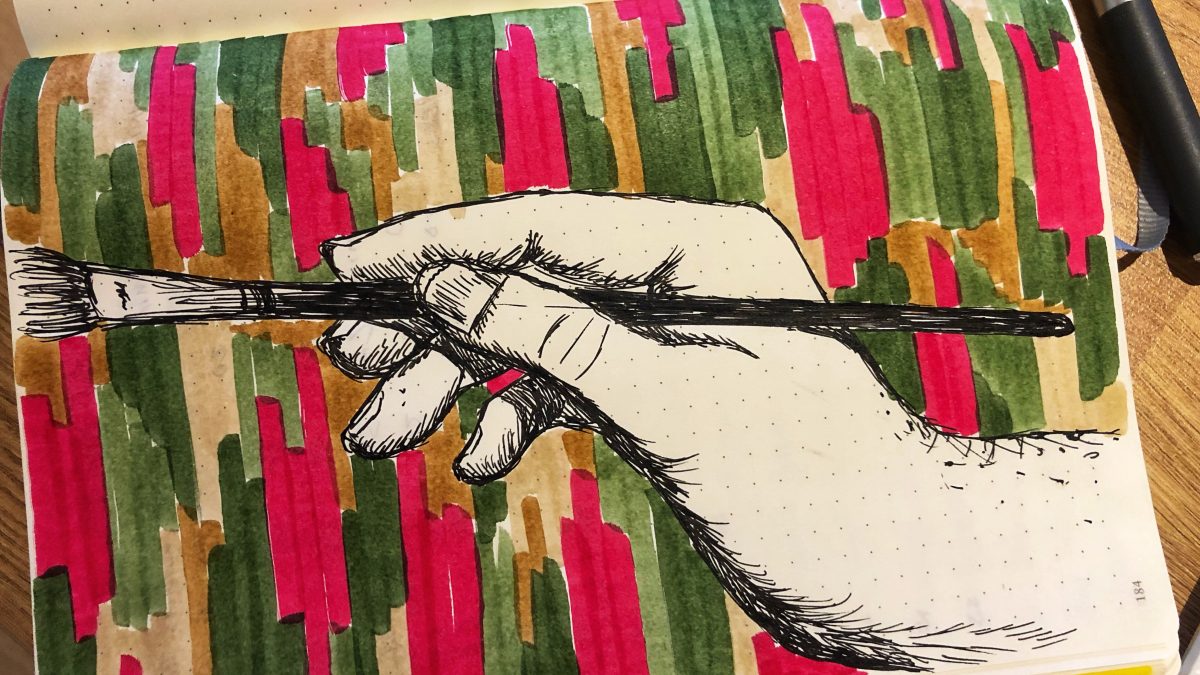Most people I know equate creativity with being “artistic”. That then means that many people don’t consider themselves creative. This is a severely limiting view and a major tragedy.
Consider the following from renowned non-fiction writer John McPhee, who wrote an entire book on a single tennis match that is one my favorite books I’ve ever read, and who could write about rocks (he did) and make it riveting:
“What is creative about nonfiction? It takes a whole semester to try to answer that, but here are a few points: The creativity lies in what you choose to write about, how you go about doing it, the arrangement through which you present things, the skill and the touch with which you describe people and succeed in developing them as characters, the rhythms of your prose, the integrity of the composition, the anatomy of the piece (does it get up and walk around on its own?), the extent to which you see and tell the story that exists in your material, and so forth. Creative nonfiction is not making something up but making the most of what you have.” (John McPhee, Draft No. 4)
You can be creative on multiple levels and are certainly doing that, or have done it before, if you haven’t already noticed.
This same idea that Mr McPhee is getting at can apply to any line of work, any discipline, any field. You can be creative on multiple levels and are certainly doing that, or have done it before, if you haven’t already noticed.
One of the things I have found recently is a renewed appreciation for the creativity within how I approach my current chosen domain (I’m not certain how to precisely name it, but a “engineering teacher” comes close). The appreciation has become stronger as I have taken the practice of my craft more seriously. I’ve found so many ways to exercise creativity in both how I produce and how I learn (and have taken feedback and tried to put my ego aside more as well). Creativity is not something you either have or don’t. Creativity is a skill that needs practice, everyone can be better, and it’s a simple matter of putting in the hours and looking for ways to make yourself more effective.
You don’t need a rarified job; you need instead a rarified approach to your work.
Cal Newport
Some ways that I’ve been more creative in how I produce include exploring new habits, like keeping daily (physical and digital) logs, doing weekly summaries/reviews (some of which has been shared here), and trying to stretch myself to be faster and more effective in the things I do everyday, from the most basic, like typing and setting up pre-defined text snippets and templates that can be called up from a keystroke. I have become creative in how I learn by actively seeking out projects/problems to go and solve with the technology I work with as a way to stretch my expertise in intentional ways (in some cases, I’ll considering doing “fake” projects as exercises as well, I learn best by doing).
I would also be leaving out something if I also didn’t mention the role that feedback from my coworkers, and a desire to be seen as useful to them, provides me in fuelling my practice. This feedback is often what seems to ultimately be able to push me out of my comfort zone into doing things that are scary, and not surprisingly, the most impactful in getting more creative and better at what I do.
Finally, I have become more creative by taking things away from my daily habits as well. Prioritization is already hard. Distractions, needless process, and an over-dependence on needing to keep things too tidy and neat make it harder.
It’s possible that your job is to make decisions. If that’s what you do, what would it mean to do it more productively? With less hassle or drama? If we make decisions all day, how can we do it better? Because that’s the question every other professional asks about her work. If we make decisions for a living, it might be worth figuring out what would happen if we made better ones. (Seth Godin, What do you make?)
In the end, what is creative is unique and relative to you. My recent path of figuring out new work and how to do it better has been a great re-discovery that being a creative, being a creator, is what I do and have always loved to practice.
“Throughout most of human history, to be a blacksmith or a wheelwright wasn’t glamorous. But this doesn’t matter, as the specifics of the work are irrelevant. The meaning uncovered by such efforts is due to the skill and appreciation inherent in craftsmanship—not the outcomes of their work. Put another way, a wooden wheel is not noble, but its shaping can be. The same applies to knowledge work. You don’t need a rarified job; you need instead a rarified approach to your work.” (Cal Newport, Deep Work)








Comments welcome!